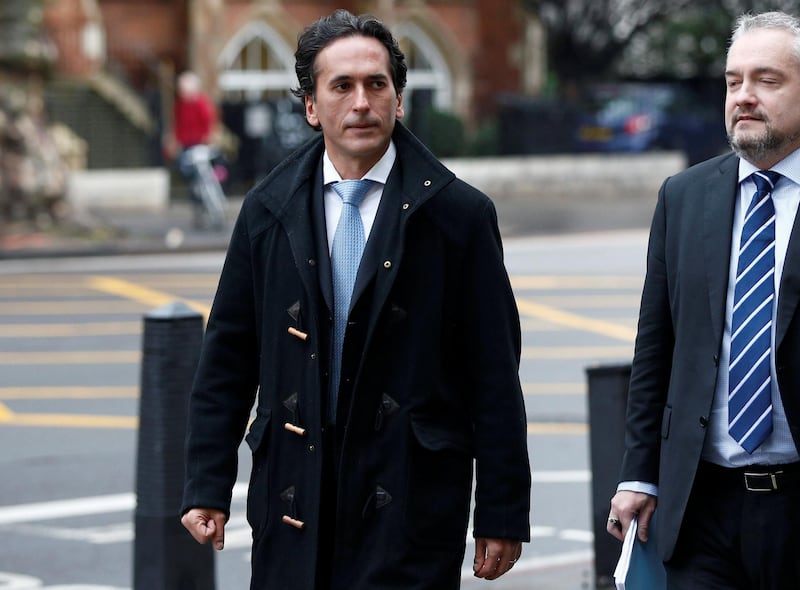Former traders for Barclays and Deutsche Bank were sentenced to a combined 13 years in prison by a London judge for conspiring to rig interest-rate benchmarks.
Christian Bittar, a 46-year-old Deutsche Bank employee, was sentenced to five years and four months, while the man described by prosecutors as his fellow mastermind in manipulating the market, Barclay’s Philippe Moryoussef, received eight years. The 50-year-old Moryoussef was sentenced in absentia after staying in France to avoid the trial.
While Bittar and Moryoussef were friends who vacationed together and made millions coordinating derivative trades, their paths diverged in the weeks before the trial started in early April. Bittar pleaded guilty to the fraud charge, while Moryoussef left London, and has since indicated he will try to avoid the UK judicial system.
“Derivatives trading is often said to be a form of betting,” Judge Michael Gledhill said when sentencing Bittar. “You took the analogy further by loading the dice.”
On Thursday, Bittar agreed to pay $4.3 million in costs and penalties. The judge considered giving him nine years in prison but reduced it because of his guilty plea.
The Euribor trial brings the UK Serious Fraud Office’s seven-year investigation into interest rate rigging towards its end. Deutsche Bank and Barclays are among financial institutions that paid more than $9 billion in fines in the UK and US for the misconduct. SFO prosecutors won convictions for seven of the 19 individuals charged with rate-rigging offences. The jury that found Moryoussef guilty was unable to reach a verdict on three of his former colleagues.
"Both the banks and some of their employees fell far short” of standards, Judge Gledhill said. “Senior managers should’ve known what was going on and should’ve stopped it.”
UK prosecutors will seek a new trial in January for Colin Bermingham, Carlo Palombo, and Sisse Bohart in the case after the jury failed to reach a verdict on the three former Barclays traders. The panel found Deutsche Bank executive Achim Kraemer not guilty.
_______________
Read more:
Three former Barclays traders convicted in London Libor rigging trial
Libor scandal: Trader’s criminal miscalculation ends with 14 years in prison
_______________
The sentences for Bittar and Moryoussef are the latest in a wave of jail terms related to financial wrongdoing. Former UBS Group trader Tom Hayes is serving 11 years in prison for rigging Libor and in May, an ex-Deutsche Bank broker received a record four-and-a-half-year term for insider trading.
Bittar and Moryoussef’s crimes were committed between 2005 and 2009, when they were derivatives traders. They wanted to improve their trading position by convincing Euribor setters at their banks to enter higher or lower values, depending on what suited them.
Moryoussef was motivated by greed, the judge said.
“The evidence against Mr Moryoussef was overwhelming,” the judge said.
Euribor is the euro interbank offered rate, a benchmark made up by submissions for dozens of lenders, who measure the cost of borrowing between each other. The published value is the average of the submissions after the top and bottom 15 per cent have been eliminated.
The judge criticised the way Euribor was organised. The lack of clear instructions on how to set the rate was “at best foolhardy and at worst, negligent,” he said.
Prosecutors said Bittar was the best-paid trader they’d ever come across. He had developed such a powerful reputation that he was able to craft a deal to take home a slice of his earnings for the bank. In 2008 alone, his bonus was close to £90m (Dh428.5m).






